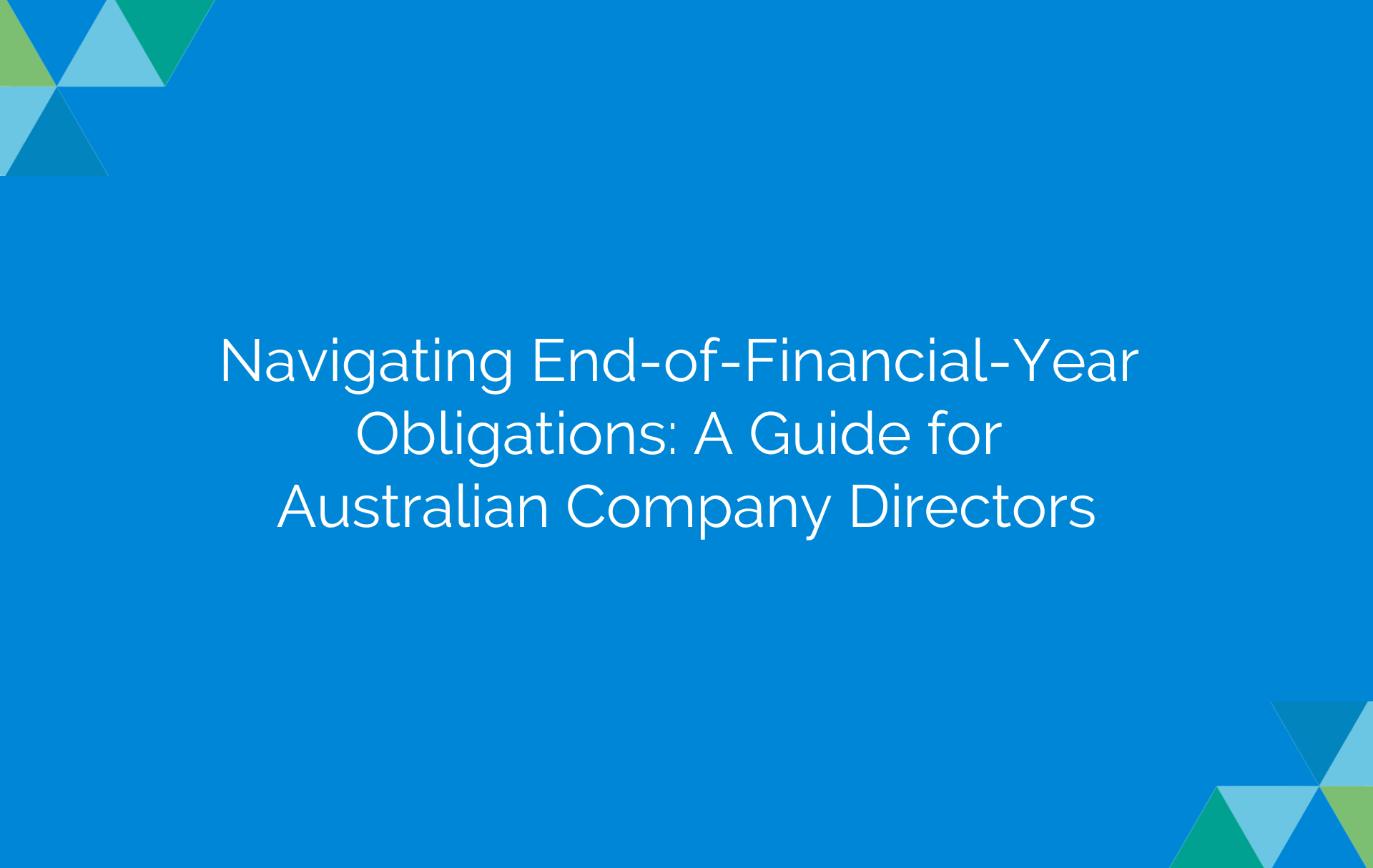Navigating End-of-Financial-Year Obligations: A Guide for Australian Company Directors

As the end of the financial year approaches, Australian company directors are faced with important financial obligations that require their attention. Ensuring compliance with these obligations is not only a legal requirement but also crucial for maintaining the integrity and reputation of the company.
Below, we provide an overview of the key financial obligations that directors need to address at the end of the financial year.
1. Financial Statements: Directors must ensure the preparation of accurate and complete financial statements for the company. This includes the Profit and Loss Statement, Balance Sheet, and Cash Flow Statement. The financial statements should adhere to accounting standards, provide a true and fair view of the company's financial position, and be available for audit if required.
2. Audit and Review Requirements: Depending on the size and type of the organisation, directors may be required to engage an independent auditor or have the financial statements reviewed. Public companies, large proprietary companies, and certain other entities typically require an annual external audit. Smaller proprietary companies may have the option of conducting a review instead of a full audit.
3. Lodgement of Financial Statements: Directors are responsible for ensuring the timely lodgement of the company's financial statements with the Australian Securities and Investments Commission (ASIC). Public companies are generally required to lodge their financial statements within four months after the end of the financial year, while proprietary companies have six months to lodge. Extensions may be available in certain circumstances.
4. Tax Compliance: Directors must ensure the company's compliance with various tax obligations. It is important to accurately report the company's taxable income, claim eligible deductions, and pay any outstanding tax liabilities. This includes lodging the company's income tax return with the Australian Taxation Office (ATO) by the specified due date.
5. Payroll Obligations: Directors must ensure compliance with payroll obligations, including payment of employee wages, PAYG withholding tax, and superannuation guarantee contributions. The company should provide employees with accurate payment summaries and lodge the annual payment summary report with the ATO.
6. Dividend Declarations: If the company declares dividends, directors need to comply with the requirements for dividend declarations and distributions. This includes ensuring that dividends are paid out of profits, maintaining proper records, and lodging necessary documentation with ASIC.
7. Compliance with Corporations Act: Directors must comply with various provisions of the Corporations Act 2001. This includes maintaining proper financial records, disclosing relevant information to shareholders, and acting in the best interests of the company.
8. Other Obligations: Depending on the nature of the company's activities, directors may have additional financial obligations. This can include compliance with industry-specific regulations, licensing requirements, and reporting obligations to regulatory bodies.
It is important for directors to seek professional advice from accountants or legal experts to ensure compliance with their specific financial obligations at the end of the financial year. Non-compliance can result in penalties, legal issues, and reputational damage for both the directors and the company.
Wrights Chartered Accountants Auditors utilise the latest technical software which benefits our clients as it allows us to deliver a cost-effective, risk-based, paperless audit and ensuring that our team have the latest and most up to date knowledge of the International Accounting Standards, Australian Accounting Standards, and the Australian Auditing Standards.
If you would like more information about our internal and external audit services, please contact us on 02 6566 2200.
Important notice: This article provides information rather than financial advice. The content of this article, including any information contained in it, has been prepared without taking into account your objectives, financial situation or needs. You should consider the appropriateness of the information, taking these matters into account, before you act on any information.










